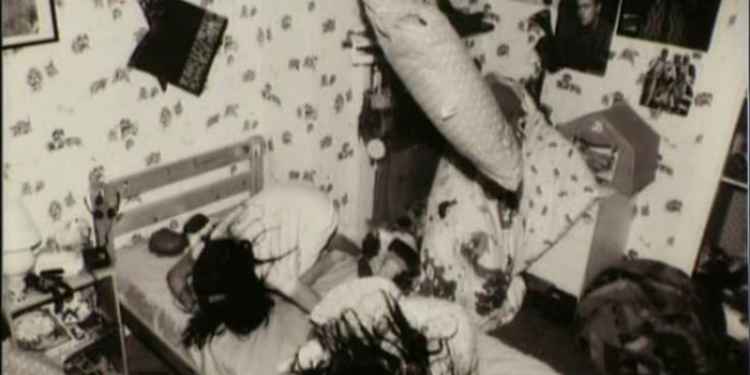
Photo: Pixabay

Photo: Pixabay
This page is more than one year old.
An exorcist is someone who is believed to have the power or ability to expel evil spirits or demons from a person. This practice is known as exorcism, or, more accurately referred to within the church as deliverance.
Exorcisms are deeply rooted in religious tradition, often associated with Christianity but also found in various forms across different cultures and religions around the world. An exorcism directly involves rituals aimed at freeing a person from demonic possession. When dealing with a place, the term "exorcism" might be used colloquially, but technically, this process is a "blessing" or a "cleansing."
Perceptions of exorcists are often skewed by the dramatic and sensationalised portrayals of exorcisms seen in movies and television shows, which often depict the process as a violent and frightening ritual. Rotating heads and projectile vomiting aren't the norm. Real-life exorcisms are typically calmer, conducted with respect for the afflicted individual in a way that won't exacerbate the issue. They are not performed lightly, and there are strict guidelines and conditions under which they can be carried out, especially within organised religions.
In Christianity, an exorcist is typically an ordained priest or a specially trained deliverance minister who has been granted permission by senior clergymen to perform exorcisms. The path to becoming an exorcist usually starts with being ordained as a priest, who goes on to complete training focusing on understanding demonic possession, differentiating it from mental illness, and learning the rites and responsibilities of exorcism.
The Catholic Church, in particular, has formal rituals and prayers laid out for conducting an exorcism. In some Christian communities, those who are believed to have a special calling or gift but are not necessarily ordained priests might be authorised to perform exorcisms.
Exorcism requires approval from the church, which comes after a thorough investigation to rule out non-supernatural explanations for the individual's behaviour. Approval is a crucial step, as many of the symptoms traditionally associated with possession can also be signs of mental health issues, such as schizophrenia, dissociative identity disorder, or psychosis. Things like changes in personality, mood swings, violent outbursts, speaking in unknown languages, or exhibiting unusual physical strength could easily apply to both. Before proceeding with an exorcism, many religious groups require that the individual claiming to be possessed undergo a psychiatric evaluation by medical professionals in order to rule out any psychological or medical explanations for the person's symptoms.
Only after such conditions are ruled out do religious authorities grant permission for an actual exorcism to be performed, the process of which can vary widely. There are many different beliefs about the nature of possession and demons that determine which methods are used to break attachments. The effectiveness of these methods depends heavily on individual beliefs and cultural contexts.
Exorcism often involves a series of steps that normally include the recital of prayer and the use of holy water, intended to drive the evil spirit to leave the afflicted person. A typical exorcism might begin with the exorcist preparing themselves spiritually and mentally for the task. The space where the exorcism is to take place may also be prepared with a blessing involving holy water.
The exorcism begins by using prayers, hymns, or psalms to ask for protection during the ritual. In popular culture, exorcists are often seen attempting to communicate with the possessing entity to identify it. However, in many exorcism practices, the exorcist is unlikely to engage directly with the entity believed to be causing possession. The focus of the exorcism is more on the prayers, rituals, and power of religious faith to aid the afflicted person than acknowledging or empowering any supernatural entities.
The core part of the exorcism can be physically and emotionally draining for all involved, especially for the person believed to be possessed. It involves the exorcist commanding the evil to leave the possessed person. This might involve reciting specific prayers, such as the Rite of Exorcism, making the sign of the cross, or using holy water and other religious symbols. The tone can range from something reminiscent of a Sunday mass to something much more commanding, depending on the situation and tradition.
An exorcism isn't always immediately effective and doesn't necessarily work the first time. It may need to be performed multiple times, but once the exorcist believes the spirit has been expelled, the ritual concludes with, you guessed it, more prayers, this time giving thanks to the powers above and seeking continued blessings for the afflicted individual.
Outside of the setting of the church, the concept of exorcism sometimes comes up during paranormal investigations when ghost hunters encounter what they believe to be demonic or negative entities. In these situations, ghost hunters might choose to seek the assistance of an exorcist or a spiritual advisor to help deal with the malevolent spirit. Some ghost hunting teams might even include a member who has knowledge of spiritual protection or cleansing rituals.
Within the paranormal world, there are also demonologists working as part of teams or as individuals. A demonologist's knowledge is based on some of the same teachings as those of exorcists but focussed more specifically on demonic lore. Their role is more about the theoretical study of demons than actually performing exorcisms.
It may not always be appropriate for ghost hunters and demonologists to enter the realm of exorcisms, as the role of an exorcist is not just about battling unseen forces. It's also about providing spiritual support and reassurance to those who believe they are facing supernatural turmoil.
Sometimes this support and reassurance might be all an afflicted person needs. If individuals believe strongly in the power of the ritual and in the authority of the exorcist, they might experience real improvements in their symptoms or behaviour, even if the change is not directly caused by the expulsion of an actual entity. This could be due to the psychological impact of undergoing a ritual believed to be powerful, the relief of sharing their experiences and being taken seriously, or the comfort of feeling supported by their religious community.
Skeptics often argue that the effectiveness of exorcism is due to the placebo effect, especially in cases where the symptoms of possession resemble those of psychological or physical illnesses that respond to belief and suggestion. The placebo effect, in medical terms, occurs when a patient experiences a perceived improvement in their condition after receiving a treatment that has no therapeutic effect on the targeted illness. This improvement is thought to be due to the individual's beliefs and expectations about the treatment.
Although best understood as part of Christianity in the western world, exorcism is often found in many other religions and cultures that have their own versions of exorcism rituals, each with its own unique approach to dealing with malevolent spirits. For example, in Islam, a similar practice known as Ruqyah involves reciting verses from the Quran to protect individuals from harm and evil spirits.
More Essential Parapsychology
See All
ArrayOctober 11, 2024
The Reality Behind Kirlian Photography’s Glowing Auras

ArrayOctober 07, 2024
Could Retroactive Psychokinesis Allow Us To Influence The Past?

ArrayOctober 05, 2024
What Spontaneous Cases Are & Why Parapsychologists Research Them
Learn With Higgypop
Hosted by Paralearning in association with Higgypop, these courses on ghost hunting, paranormal investigations, and occult practices draw on the experience of our team of paranormal writers.

Diploma In Parapsychology & Psychic Phenomena
This course gives you practical and useful knowledge of ghost hunting and paranormal research, which is invaluable when conducting your own paranormal investigations or as part of a group event.
View Course
Diploma In Advanced Scientific Theory For Paranormal Investigators
This course gives you practical and useful knowledge of ghost hunting and paranormal research, which is invaluable when conducting your own paranormal investigations or as part of a group event.
View CourseMore Like This

Haunted BritainDecember 25, 2024
2024's Most Popular Paranormal Hotspots In The UK

GamesNovember 28, 2024
Can You Match These Famous Ghosts To Their Haunting Grounds?

HalloweenOctober 30, 2024
Richard Felix Shares A Collection Of Modern Ghost Stories For Halloween

ParanormalOctober 20, 2024
My First Ever Ghost Hunt: 20 Years Ago This Halloween Night
 See More on Audible
See More on Audible

Comments
Want To Join The Conversation?
Sign in or create an account to leave a comment.
Sign In
Create Account
Account Settings
Be the first to comment.